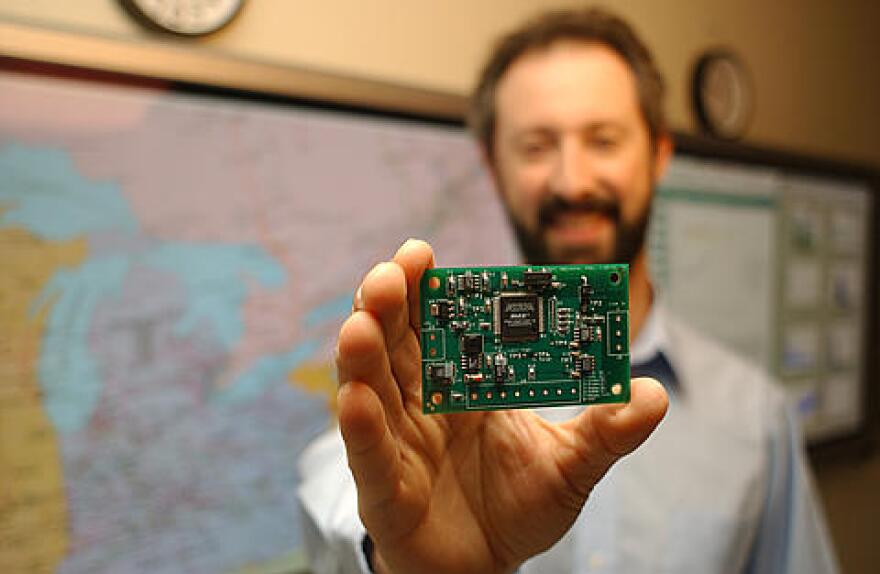When you turn on your tap or shower in the morning or run your washing machine at night, you probably aren’t thinking much about how many other people in the area are doing the same thing.
But when it’s cold outside, use of electric heaters for hot water often pushes peak loads to the brink for local utilities.
That’s where so-called smart-grid technology could come in and save the day. The idea, which increases energy efficiency and saves everyone money, is being put to the test on Fox Island, near Tacoma.
The U.S. Department of Energy is testing smart grid technology in five Northwest states over five years.
On Fox Island, they’re looking at electric home water heaters that are interactive and shut themselves off at peak times. So even if you enjoy a hot shower in the morning when most people do, you aren’t impacting the grid, says Jonathan White with Peninsula Light Company.
“For example, a standard water heater’s 50 gallons. And a shower head uses about 2.5 gallons of water per minute. So if you take a 10-minute shower, you’re going to use about 25 gallons of hot water. You could get two showers of that water heater [even] without it turned on,” he said.
It might not work so well for larger families with, say, five people who all need to shower in the morning. But it can work for smaller households.
Customers can opt in to get the technology installed and get a $5 rebate on their power bills. That’s what Richard Olszewski did. The retired computer manager lives a fixed income, but he says he signed up because he thinks it just makes sense.
“I feel like anything we can do as an individual, even in a very small way, that adds up,” he said. “It’s like interest. Over a long period of time, it amounts to something.”
He says reducing demand here could help utilities avoid building more dams, for example, or reduce air pollution from coal-fired power plants.
The DOE’s smart grid demonstration project is led by Batelle in Richland, Washington. It started two years ago and includes more than a dozen other sites in Oregon, Idaho, Wyoming and Montana.
The largest site is the University of Washington, where smart meters are being tested in 216 buildings to see if awareness of electricity use and interactivity can lead to lower loads.







